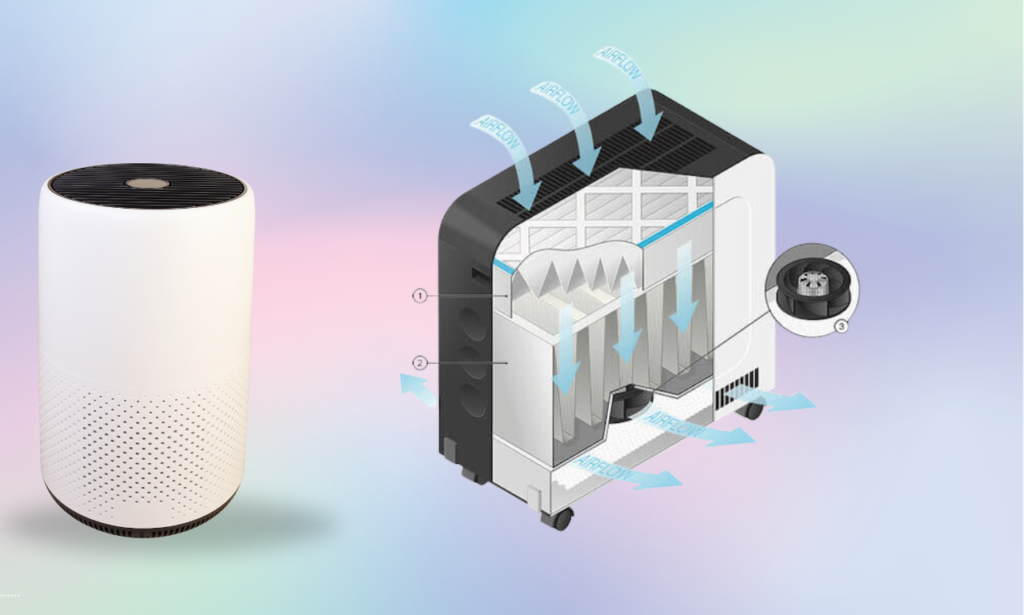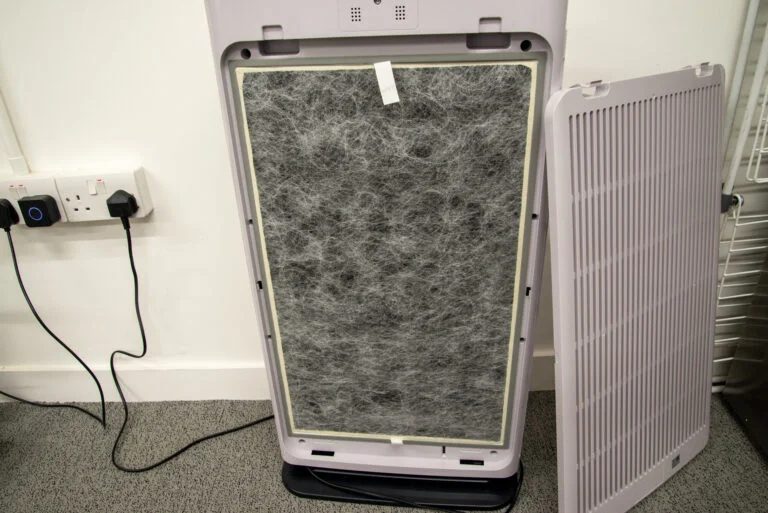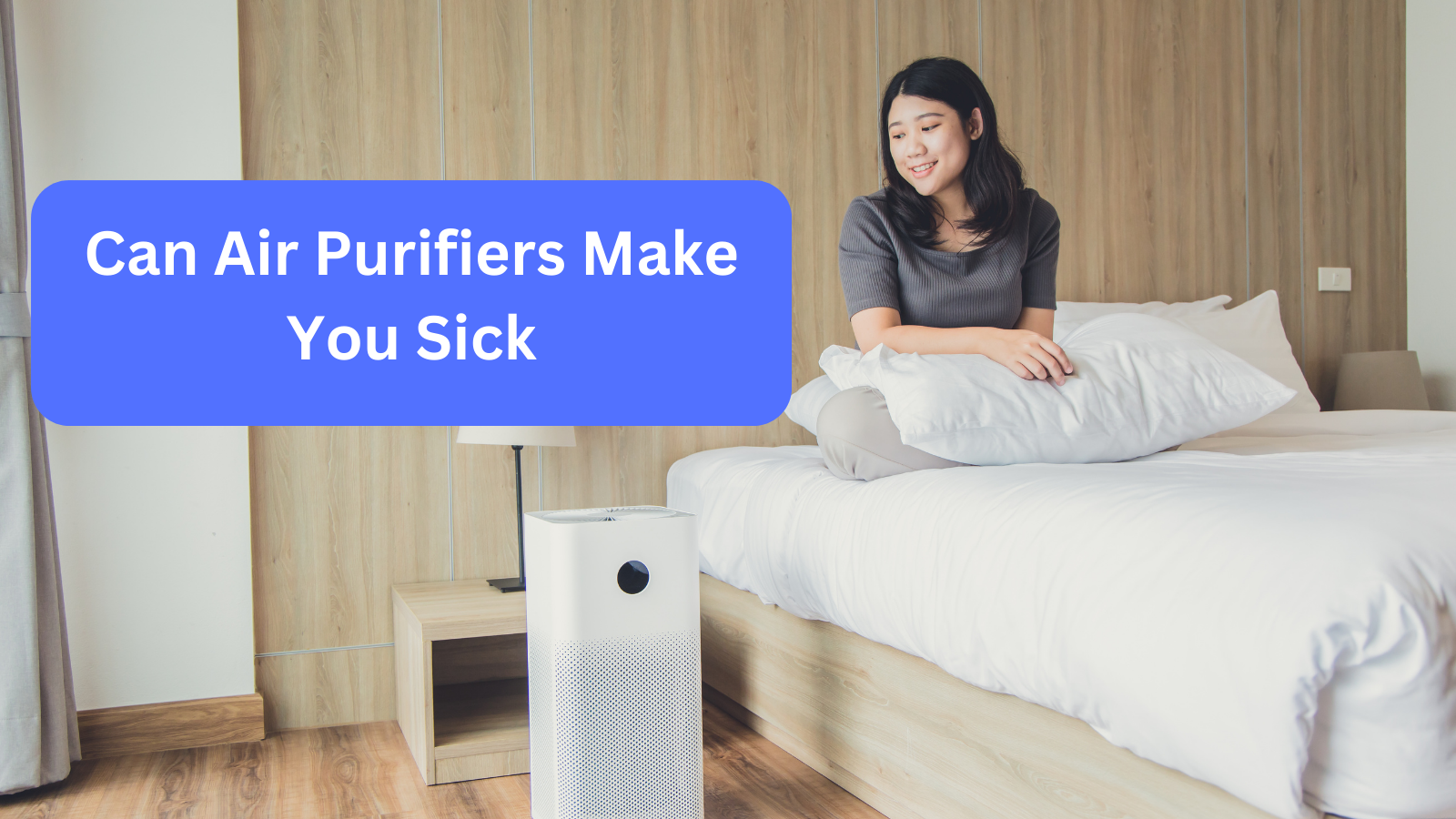Air purifiers are devices designed to clean the air in your indoor environment. They do this by using filters and fans to remove particles like dust, pollen, and smoke.
The most common type of filter used is the HEPA filter, known for its ability to trap 99.97% of particles down to 0.3 microns. Most air purifier have activated carbon filters to deal with odors and chemicals.
Air purifiers are becoming increasingly popular as people become more aware of the importance of indoor air quality. However, there is some concern that air purifiers can actually make you sick. So, what’s the truth?
How Does an Air Purifier Work?

An air purifier is an indoor device designed to clean your air. Inside, there’s a fan that draws air from the room. This air then goes through a series of filters.
The primary filter in most high-quality air purifiers is a High-Efficiency Particulate Air (HEPA) filter. This HEPA filter can trap tiny particles down to 0.3 microns. That includes things like dust, pollen, and pet dander. So, when air goes through, these particles get stuck in the filter. The air that comes out is much cleaner.
Air purifiers also have additional features. For instance, activated carbon filters are common. These filters are good for capturing odors and chemical fumes. Some models even have a UV light. This light kills bacteria and viruses as the air passes by it. But be cautious with this feature. If not used correctly, it can produce ozone. That’s a gas you don’t want to breathe.
So, what happens next? The clean air gets pushed back into the room. You’ll usually see a noticeable difference in air quality after some hours. Just make sure to choose the right size for your room. Too small, and it won’t clean effectively. Too big, and you’re just wasting electricity. Keep filters clean for the best results.
Dirty filters can’t clean air well and can also become a spot for germs to grow.
Can Air Purifiers Make You Sick?

You need to know the kind of filter in your air purifier. The ones to be wary of are ionizing purifiers. These types can release ozone. That’s bad news for your lungs.
Even low levels of ozone can lead to respiratory issues. So, a safe bet is a High-Efficiency Particulate Air (HEPA) filter. This type doesn’t emit ozone. It also captures particles as small as 0.3 microns. Basically, it’s your go-to for safety and efficiency.
Maintenance
Listen up. Maintenance isn’t a joke. If you slack off on cleaning or replacing filters, problems arise. A dirty filter is not just ineffective; it’s dangerous. Mold and bacteria can grow on it. And then, you’re essentially blowing these health hazards around your room.
Sensitivity to Trapped Particles
Alright, for those with allergies, this is for you. When you’re changing out those filters, take precautions. A used filter holds onto all kinds of stuff. Dust. Pollen. Animal hair. You don’t want to breathe that in. So, put on gloves and a mask.
Is It OK to Sleep in a Room with an Air Purifier?
Is it fine to sleep in a room with an air purifier? The short answer is yes. But, some things need your attention. Noise, power use, and filter type are key. Paying attention to these can make the experience better.
Quiet air purifiers are preferable for sleep. Check noise levels in decibels before buying. For electricity, consider models with Energy Star ratings. They save on power costs. Filter type is crucial. Opt for HEPA filters as they are safer and don’t release ozone.
So, yes, sleep in a room with an air purifier. But be smart about your choices.
What Are the Side Effects of an Air Purifier?
Air purifiers have upsides. But there are downsides too. Knowing these can help you make good choices.
Ozone Risks
Some air purifiers create ozone. This is not good for your lungs. It can cause coughing and irritation. Always pick an “ozone-free” model. HEPA filters are a safe option.
Dry Atmosphere
Air purifiers can make the air dry. This can be harsh on your eyes, nose, and throat. If you have skin issues like eczema, dry air may make it worse. Some folks use a humidifier to solve this. But check your home’s humidity first.
Noise Trouble
We mentioned noise before. But it’s worth noting again. Persistent noise can be more than annoying. It can mess with your focus and raise your stress. Choose a quieter model to avoid this issue.
Filter Problems
Old filters are a hazard. They can turn into germ hotspots if not replaced. Dirty filters can push out dirty air. Follow the guidelines for filter changes to avoid this.
Final Words
Air purifiers generally aim to improve air quality. But not all are created equal. Some might emit ozone, which can cause or aggravate health issues. Also, over-reliance on these machines while ignoring basic hygiene can create problems.
So, be cautious. If you decide to buy an air purifier, choose one that’s certified and doesn’t emit ozone. Keep your living area clean. Don’t think an air purifier is a full replacement for regular cleaning. This way, you can enjoy cleaner air without the worry of getting sick.
